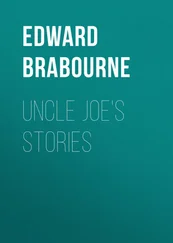Edward Limonov - His Butler’s Story (1980-1981)
Здесь есть возможность читать онлайн «Edward Limonov - His Butler’s Story (1980-1981)» весь текст электронной книги совершенно бесплатно (целиком полную версию без сокращений). В некоторых случаях можно слушать аудио, скачать через торрент в формате fb2 и присутствует краткое содержание. Жанр: Современная проза, на английском языке. Описание произведения, (предисловие) а так же отзывы посетителей доступны на портале библиотеки ЛибКат.
- Название:His Butler’s Story (1980-1981)
- Автор:
- Жанр:
- Год:неизвестен
- ISBN:нет данных
- Рейтинг книги:5 / 5. Голосов: 1
-
Избранное:Добавить в избранное
- Отзывы:
-
Ваша оценка:
- 100
- 1
- 2
- 3
- 4
- 5
His Butler’s Story (1980-1981): краткое содержание, описание и аннотация
Предлагаем к чтению аннотацию, описание, краткое содержание или предисловие (зависит от того, что написал сам автор книги «His Butler’s Story (1980-1981)»). Если вы не нашли необходимую информацию о книге — напишите в комментариях, мы постараемся отыскать её.
His Butler’s Story (1980-1981) — читать онлайн бесплатно полную книгу (весь текст) целиком
Ниже представлен текст книги, разбитый по страницам. Система сохранения места последней прочитанной страницы, позволяет с удобством читать онлайн бесплатно книгу «His Butler’s Story (1980-1981)», без необходимости каждый раз заново искать на чём Вы остановились. Поставьте закладку, и сможете в любой момент перейти на страницу, на которой закончили чтение.
Интервал:
Закладка:
Be that as it may, by the time Jenny suddenly left me, I had gotten used to the constant oscillation in my feelings for her between friendliness and gratitude and aversion and irritation. You already know what I had to be grateful to her for, but what irritated me about her was her plebeian manner. For example, whenever she was sitting down with her fat legs spread wide (she had begun to put on weight, gentlemen), so that you could see her cunt, or not her cunt itself, but her underpants with her cunt underneath, she was too lazy to pull down her long skirt or straighten it. She wore long skirts in imitation of Nancy, her employer, who was always arrayed in the same uniform — skirts so long they even dragged in the snow and mud.
I would say to her, "Jenny, what do you dress like an old woman for? You're only twenty-two. (She was already twenty-two! Time had passed.) And why do you have to sit in that vulgar way? Are you too lazy to move your legs?"
She would laugh, but if I continued to insist, she would get irritated and yell her invariable response: "Cut it out, Edward! Cut it out! Stop criticizing me. I'm sitting the way that's natural and comfortable for me, and other people don't have to look if they don't like it!"
Once I drove her to tears that way. It was on a day when she looked particularly disgusting to me — her jaw was swollen from having her wisdom teeth removed and she had another pimple under her nose. She offended my aesthetic sense. That's the sort of person I was then, gentlemen, but really, how could I help it! She was after all a sturdy and likable girl and could have looked a lot better; she could have used a little makeup, say. I told her all that then, and she started crying.
"Why do you keep criticizing me! You act like you're my teacher!" she said. "Instead of encouraging me, you make me feel like a nothing."
I told Jenny that I didn't always do what other people told me either, but I listened to what they had to say and considered it, and if I found something useful in their criticism, then I tried to bear it in mind and change. And that I wasn't criticizing her to humiliate her or show that I was better than she was, but only to make her better, since I cared about her. The crafty liar Limonov.
"And really, Jenny," I said, now completely into my didactic role, "how much longer are you going to waste your time with Martha, Jennifer, and even Bridget, when it comes down to it? You need to spend more time with cultivated people and read more and maybe even go to school somewhere. Even at my age, I've thought at times of studying at Columbia University. You're a smart girl, Jenny, and you aren't going to be Steven Grey's housekeeper forever. The people you go around with now are much less than you are. You're obviously much brighter than they are and much more talented."
Jenny stopped crying and perked up and started making plans. "You're right, Edward, I should go to school," she said enthusiastically, and we began discussing where she could go. But having made her plans, Jenny didn't have the strength to carry them out. She was lazy and given to inertia. She had an innate intelligence and was streetwise the way simple people are, and she was very sarcastic, but God, what did I want from her anyway, that she'd become another Marie Sklodowska Curie and for my sake turn herself into something diametrically opposed to what she actually was? No one can leap higher than their ceiling, and you can't make a lady out of a servant girl. And I didn't. All Jenny would ever be was a mama cow. If only she'd had ambition, but unfortunately no, I never found a drop of it in her, except for a certain pride in me, her boyfriend, if you can call that ambition. Once Jenny told me, "You're a typical poet, Edward, with long wavy hair just like you're supposed to have," and she touched my hair. "Just like Lord Byron." She said this last phrase with pleasure and respect. Yes, perhaps I was her ambition, and she was doing her best to win me, but what if she couldn't, and went down in defeat?
The next day she was sitting barefoot and unkempt in the kitchen of the millionaire's house once again and chattering with her usual Jennifer, Martha, or Bonny, who lived next door, and drinking beer, with her feet so dirty that Linda still remembers it now with horror.
The days and months went by as usual, one weekend replacing another on the roof of the millionaire's house, and then the summer was gone. In August 1978 Jenny took me to California. It was her vacation, and mine too in a way, the first one I'd had in the three years I'd been in America. We had in the meantime tried to put some money aside. "Save your money, Edward," Jenny told me. "Saving money" sounded ridiculous in my case. I had plastered and whitewashed two apartments, the full extent of my earnings for the summer, so that Jenny ended up paying for my part of the trip, which made me sick. Even though she was my girlfriend and I was an opportunist, it still made me sick; it's better to have your own money and not depend on anybody else for anything.
We flew to California with Jenny's friend Martha; it was her vacation too. And there in California, with the participation of Martha and the poet Alyoshka Slavkov, a friend of mine who at the time was living in Michigan and working for a publisher of Russian books, the final act of the story of Jenny's and my romance was played out — a story that had begun by error.
I, who sometimes view my life as the labors of Hercules or the travels of Odysseus, was glad when after several days in gigantic Los Angeles and depressing circumstances in the vast, beautiful home of Isabelle, who had only just moved there with her dogs and Valentine ill with cancer and Chloe and Rudy, we finally went to live in a redwood forest, an arena more fitting for Herculean labors. Jenny's father and mother owned a little piece of warm California land that in its own way was quite wonderful — a redwood grove and a real saloon built a hundred and fifty years before by the first California loggers. The four of us tumbled out of the car and into the saloon one splendid August day and distributed our things in the upstairs rooms that had once belonged to prostitutes. The fact is, the saloon had stood virtually untouched for its whole one hundred and fifty years; nobody had remodeled it, and Jenny's parents only went there once every couple of years. On the first floor, just as in all the saloons I'd seen in the movies, there was a bar and an immense fireplace, to the left of which a wooden staircase led upstairs to the second floor — to the prostitutes' rooms. It's obviously very symbolic that the last time I fucked that peasant angel was in one of those very rooms.
We had picked up Alyoshka Slavkov in Los Angeles and taken him to the forest with us immediately after renting an idiotically uncomfortable beige Toyota that looked like a piece of soap in shape and color and that stank like a toilet inside.
If you've never been in a redwood forest in your life, it will be very difficult for you to imagine. Darkness reigned there. A little sunlight fell on the small meadow where the saloon stood, but the rest of the Jackson property lay in the shadow of the giant trees and therefore in a kind of permanent green darkness. In the evening packs of husky raccoons would come out of the trees to the campfire Alyoshka and I had built near a rude fireplace made of stone, and beg in the hope of making off with something. If I turned the beam of the flashlight toward the huge tree that was closest to the fire, the whole band of them, sometimes as many as five or six raccoons, would freeze in place in their fur coats with only their eyes gleaming. If we left the kitchen door open, they would come in there too, unafraid of its bright electric lights, and after taking whatever food was offered, would run heavily away. At night we could hear them walking on the roof. I liked the raccoons. There was also a kind of dark blue bird living in the redwood forest, which I fed bread and called a "blue jeans bird," since it was exactly that unbelievably artificial color.
Читать дальшеИнтервал:
Закладка:
Похожие книги на «His Butler’s Story (1980-1981)»
Представляем Вашему вниманию похожие книги на «His Butler’s Story (1980-1981)» списком для выбора. Мы отобрали схожую по названию и смыслу литературу в надежде предоставить читателям больше вариантов отыскать новые, интересные, ещё непрочитанные произведения.
Обсуждение, отзывы о книге «His Butler’s Story (1980-1981)» и просто собственные мнения читателей. Оставьте ваши комментарии, напишите, что Вы думаете о произведении, его смысле или главных героях. Укажите что конкретно понравилось, а что нет, и почему Вы так считаете.












